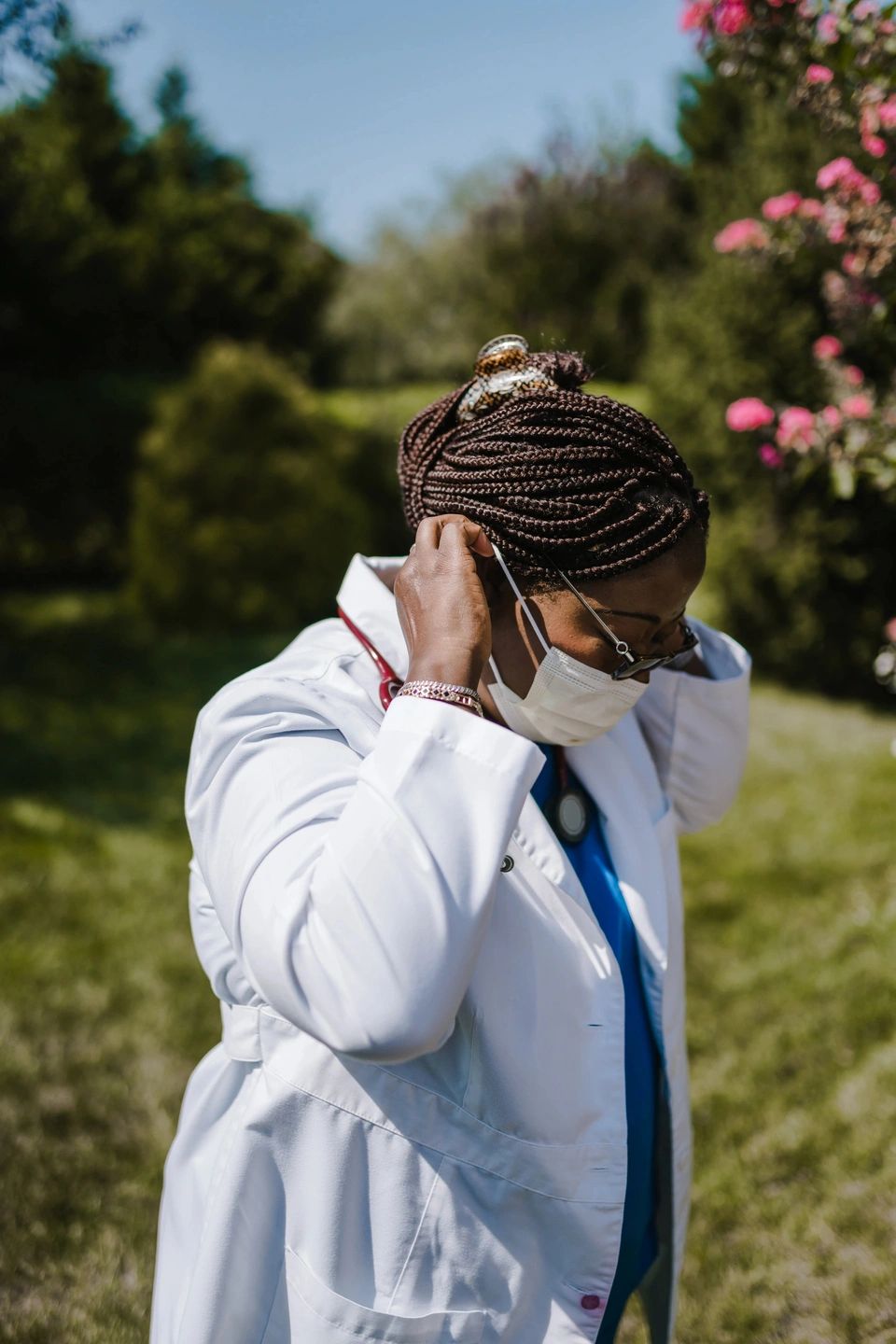
Requested actions
- Build trust in COVID-19 vaccine. Recommend all patients 12 years or older get vaccinated. Pfizer COVID-19 vaccine now authorized for people 12 years or older.
- Providers can now give COVID-19 vaccine simultaneous with or within any number of days of other vaccines.
- Providers no longer need to use 95% of their COVID-19 vaccine within 7 days.
Build trust in COVID-19 vaccine
Studies show a healthcare provider’s strong endorsement is one of the most important factors in a patient’s decision to get vaccinated. COVID Collaborative analyzed poll data from UnidosUS and the National Association for the Advancement of Colored People (NAACP) to show building trust in vaccine safety and effectiveness is fundamental to improve confidence in the vaccine among Black and Latinx communities. Efforts to encourage vaccination should leverage voices from these communities and emphasize that we’re finding the vaccines to be very effective locally in preventing COVID-19 illness. As vaccine supply increases and those most eager to get vaccine have received it, we need to focus on reaching people who may mistrust vaccines and healthcare. People deciding whether to get vaccine weigh all possible options to make informed and confident decisions. Help people feel confident the COVID-19 vaccines are safe and effective.
Dos and don’ts when talking about vaccines
Do:
- Seek to understand concerns and questions.
- Acknowledge concerns and mistrust.
- Correct misinformation.
- Share personal stories and why you care about the vaccine.
- Make a clear recommendation to get vaccinated.
- Tailor your message to a person’s values, like how getting vaccinated helps protect them, their friends, and their family and put the restrictions of the pandemic behind us.
- Address fears about side effects. Ask if they had any side effects with other vaccines. Prepare them that these side effects may be similar and may be more noticeable with vaccines that require a second dose.
Don’t:
- Use scientific jargon.
- Assume what concerns a person has. Do ask.
- Only offer facts. This can be an emotional decision for many.
- Dismiss concerns.
- Show fearful imagery; it may increase fears of the vaccine rather than stoke fears of the virus.
Additional resources
To support you, Washington State Department of Health (DOH) created a provider toolkit with talking points, discussion guides, and other resources to help you have effective conversations about the COVID-19 vaccine. You can also visit DOH’s Vaccine FAQ to brush up on COVID-19 vaccine information and prepare to answer the most commonly asked patient questions. Recently, DOH hosted an Expert Panel with providers across Washington to discuss how they address concerns from patients who are on the fence about vaccine, tools and resources they recommend, and ways any provider can help encourage patients to get the COVID-19 vaccine using holistic, trauma-informed strategies.
- COVID-19 vaccine videos—Ethnomed.
- When you’ve been fully vaccinated—Centers for Disease Control and Prevention (CDC).
- Talking to patients about Janssen COVID-19 vaccine safety—CDC.
- Understanding mRNA COVID-19 vaccines—CDC.
- Myths and facts about COVID-19 vaccines—CDC.
- How to talk about COVID-19 vaccines with friends and family—CDC.
Additional information
- COVID-19 vaccine locator—DOH.
- COVID-19 vaccine for providers
- COVID-19 vaccine and enrollment information for providers—DOH.
- COVID-19 vaccine provider toolkit and resources—DOH.
- COVID-19 vaccination for providers—CDC.
- Clinical considerations for COVID-19 vaccination and guidance for managing anaphylaxis—CDC.
- Vaccination distribution plan and Phase 1a guidance—DOH.
- Pfizer-BioNTech COVID-19 vaccine information for providers—CDC.
- Moderna COVID-19 vaccine information for providers—CDC.
- ACIP’s interim considerations for preparing for management of potential anaphylaxis at COVID-19 vaccination sites—CDC.
- Providers authorized to administer and order vaccines—DOH.
- COVID-19 vaccine training module on best practices for providers—CDC.
COVID-19 test processing
Labs report varying amounts of time to process COVID-19 tests. To support faster turnaround, we encourage providers to use in-state labs. The table below shows COVID-19 test processing times for in-state private labs.
| LAB | TIME TO PROCESS TEST | TESTS PROCESSED DAILY |
|---|---|---|
| FidaLab | 24-48 hours | 600 |
| Kaiser | 24 hours | 600-700 |
| LabCorp | 48 hours | Unknown |
| Northwest Pathology | 24-48 hours | 20,000 |
| Quest | 24-48 hours | 600 |
| UW Virology | 24-48 hours | 2,000-6,000 |
| Atlas Genomic | 16 hours | 10,000 |
Patient education
Share the following materials with patients.
- What to do if you have COVID-19.
- What to do if you may have been exposed to COVID-19.
- What to do if you have COVID-19 symptoms and have not been tested or exposed.
